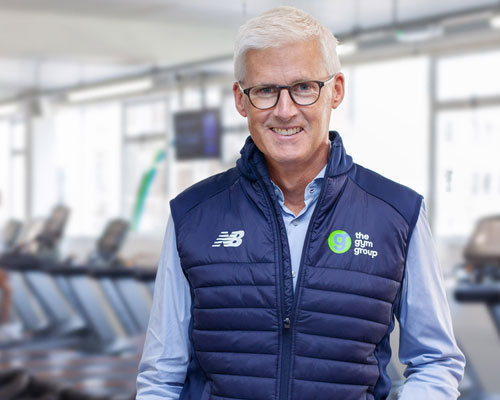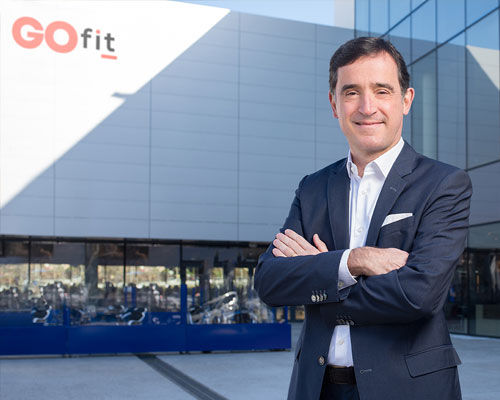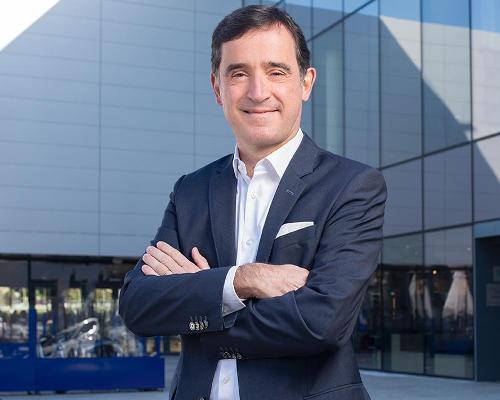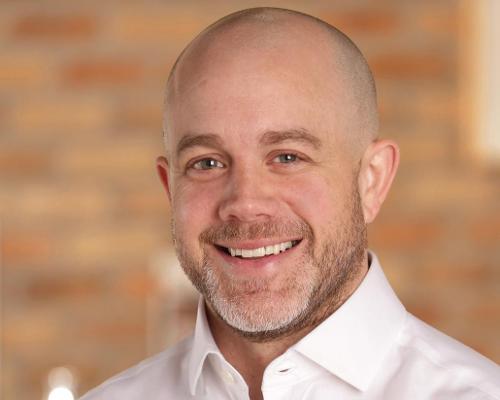features
Ask an expert: Aggregators -To aggregate or not to aggregate, that is the question
The health and fitness industry has been slow to adopt aggregators. Are clubs right to be cautious, or are they missing out on business? Kath Hudson finds out more…

If you’ve ever used an aggregator service, such as Expedia or lastminute.com, to book a flight or find a holiday, you’ll know from a consumer’s point of view how useful they can be to both find what you want and get a good deal: they make the information transparent and give the benefit of customer reviews, special offers and consolidated services.
However, the health and fitness industry is very different from travel. One’s global, while the other is local. People are motivated to go on holiday, but can be resistant to exercise. Health clubs want to build day-to-day loyalty and relationships, while the travel industry is less concerned with this.
There are a number of other reasons to be cautious, including the fear of losing control of data and the customer base, and concerns about paying a commission to get the same customers or being forced into discounting.
However, if you always do what you always did, you always get what you’ve always had, so if the industry wants to increase penetration rates, it needs to start looking for different ways to mobilise new audiences.
Aggregators bring extra marketing budgets and new technology to the table, which can translate into different customers being brought into the industry, so they’re definitely worth consideration.
If you’re thinking about giving aggregators a go, shop around first. There are a number of different choices in terms of business model and you need to know whether they focus on B2C or B2B.
Choose one that cares about growing the market and as Nishal Desai, co-founder of imin says: “Go forward with your eyes open and hands on the steering wheel. Choose to work with those companies in a way that puts you firmly in control and keeps you there.”
Peter Fitzboydon,null,
MD,
Parkwood Leisure

I have experience on both sides: being involved with the set up of OpenActive while I was chief executive of London Sport, as well as now running one of the UK’s largest leisure operators. I’m a massive fan of open data, but that doesn’t mean to say that all of its uses are going to be positive immediately. At the moment I think it’s too early to say what impact aggregators will have on the health and fitness industry, as they still need to show more innovation to really get operators interested.
Health and fitness is a low margin business, so it isn’t viable for aggregators to follow the model of the travel industry by simply offering price comparison websites. Neither will it work if they just appeal to the people who are already active. For aggregators to gain a foothold they will either need to add value to the customer experience, or start mobilising the inactive population and grow the market for health clubs. If they successfully do this it will be a win-win, but they need to be more creative to make this happen.
“If aggregators can successfully grow the market, it will be a win-win, but they need to be more creative to make this happen” - Peter Fitzboydon MD Parkwood Leisure
Neil Harmsworth,
PayAsUGym

The consumer experience always improves in markets where aggregators exist because customers love the transparency and independence they provide through the reviews they carry.
We’re seeing real momentum in this area at the moment: we even had one of the board members of one of our largest operators logging in daily, so he knew exactly what was going on in the clubs and could make sure the GMs knew what they needed to improve.
Operators need to take the time to understand the variations before deciding which model is right for their business.
Since the fitness sector is late to adopt aggregators there are lots of reference points in other industries, making it easier to compare models. As the first company, globally, to attempt to aggregate fitness, PayAsUGym benefitted from being able to study models in other sectors to understand best practise. We believe it’s important to always focus on developing a fair, collaborative and sustainable version of aggregation, which grows the market and builds trust with our operator partners.
Going forward, a split of opinion regarding aggregators is likely to remain. Operators who embrace consumer choice, recognise the desire for increased flexibility and are confident their services will stand up to public scrutiny will proactively engage with aggregators, which will result in them reaching new customers and growing their business. Opponents of aggregators will spread fear, uncertainty and doubt into the market, in the hope of maintaining the status quo. Ultimately the customer will decide how they wish to engage with fitness and we can see evidence of this within our own sector.
“We believe it’s important to always focus on developing a fair, collaborative and sustainable version of aggregation” - Neil Harmsworth PayAsUGym
Nishal Desai,null,
Co-founde,
imin

When compared with other industries, the health and fitness sector is being cautious with its adoption of aggregators, especially on the public side.
This caution is understandable: operators want to avoid becoming powerless and being reduced to only being the supply side of a marketing partnership.
They’re concerned about the cannibalisation of their user base and being moved further away from direct digital interaction with the consumer.
We understand why they feel this way, because the hospitality industry hasn’t necessarily had a good time at the hands of aggregators. Among a few things, the price transparency has hurt undifferentiated hotels. While undifferentiated health clubs could potentially be hurt in the same way, the fact that fitness searches are generally hyper-local, as opposed to global, means there is possibly less of a threat.
One advantage of aggregators is that they are thinking creatively about the end user, and how to create engagement tools and active online communities. They should be seen as another marketing channel, to be controlled and measured in the same way as all other marketing channels. They can help operators to find those people who never go to gyms.
To this end, Public Health England is doing some innovative work around the Change4Life campaign, having just launched an activity finder powered by open data and ditching static databases.
We’re only at the very early stages of finding out what aggregators could do for the industry and I believe that, when used correctly, they have so much potential to create value, as long as operators find ways of staying in control.
“We’re only at the very early stages of finding out what aggregators could do for the industry” - Nishal Desai co-founder imin
Colin Waggett,
CEO,
The Third Space

The advantage of aggregators is that they can bring new people to your front door. The disadvantage is that they weaken the relationship between club and customer and, through aggressive discounting to acquire customers, dilute the yield, which leads to lower profitability, service and re-investment levels.
Aggregators fit more comfortably with PAYG type models, where customers are more likely to shop around. In this case they can add value by offering convenience and value to customers, by providing a single buying/booking platform.
There’s much talk in our industry about improving retention. At the heart of this lies giving people great value for money and building a relationship with them, not making one-off sales, as with an airline.
As long as the plane goes from A to B, I’m happy to choose the option that best suits me from a price, quality or timing point of view. In this scenario aggregators add genuine value, by making a complex choice simpler. This isn’t the case with health clubs, so the long-term added value of aggregators to the customers in our sector is less clear to me.
The jury is also out on whether they’ll be profitable in the long term. As a generalisation, they’re trying to build scale and market share by discounting. In doing so, they’re distorting the market in what’s essentially a fixed-cost business.
I doubt many will invest in the fabric of clubs, or the people and talent needed to sustain great experiences for members.
My view on this might change, if and when market leaders emerge who charge a consistent level of pricing that reflects the cost of delivery of good service, but net-net, I don’t think aggregators are a positive thing for the industry.
“Net-net, I do not think aggregators are a positive thing for the industry” - Colin Waggett , CEO The Third Space
David Minton,
Director,
Leisuredb

We all accept and use aggregators to book restaurants, flights and hotels so why not also use them for fitness and sports activities?
Sports, particularly, and fitness – until the low cost brands arrived – were not very transparent to the consumer, so it was only natural that entrepreneurs looked at what was being achieved in other leisure sectors and tried to emulate it.
Most came up with business plans that put them between the consumer and operators, but it’s difficult for the relationship to flourish in an industry where operators don’t often have live inventory feeds or the ability to connect the aggregator into their booking system.
We’re currently tracking around 20 aggregators and most will either fail or need to change their business plan.
It’s difficult to find the sweet spot, so consumer, operator and aggregator are all happy. Some will find the magic formula, and will help drive new business and in return they’ll survive and thrive. There needs to be a win-win-win and you don’t get that by deep discounting.
“There needs to be a win-win-win for the consumer, operators and aggregators and you don’t get that by deep discounting” - David Minton director Leisuredb
Outlining the options
We navigate the complex world of aggregators, looking at some of the options available if you want to take the plunge
Gympass
null,Currently partnering with more than 1,500 fitness facilities in the UK, Gympass is a corporate wellness company that targets inactive people, by engaging with companies who are willing to subsidise fitness activities for their employees to improve their health.
As 80 per cent of Gympass users were not enrolled at a gym or a sports centre up to 12 months before joining, and their visit is subsidised by their employers, this is a good way of attracting new members.
Gympass works with organsiations to build wellness programmes that are widely communicated to employees and have been successful in mobilising 30 to 40 per cent of employees.

ClassPass
ClassPass has more than 10,000 partners in 50 cities worldwide and a 96 per cent retention rate among partners. It leverages proprietary technology to enable the booking of fitness classes, so clubs can monetise unsold time, at a discount on the usual rate.
Customers pay a monthly subscription fee, so there’s no charge to clubs.
ClassPass says its customers like variety, and are willing to take their chances with not being able to get into a class in return for the option of trying many workouts at a lower rate. The company says it unlocks new markets, as more than half its members are either new, or not regular users of clubs.
PayAsUGym
PayAsUGym works with more than 2,700 gyms in the UK. It offers customers the variety of going to lots of different gyms – ideal if they move around with work, or like to have a choice.
The advantage for gyms is access to high volumes of incremental customers who would not otherwise visit.
There’s no fee for clubs to be listed, it works on a success basis via a 20 per cent commission. Prices paid by customers are controlled by the clubs, with membership rates set at a premium. PayAsUGym says clubs typically see a 5 to 10 per cent EBITDA growth through using its service.
Incorpore
null,Incorpore runs a programme called GymFlex, working with operators who are willing to provide low corporate annual membership rates. Employees can then buy a membership via a salary sacrifice scheme, and make savings on their National Insurance payments.
Established in 2001, Incorpore serves more than two million employees from 1,000 companies. Clubs benefit from a different type of clientele, employers get a healthier workforce and employees a cheap gym membership.
MoveGB
Offering 35,000 activities across 5,500 venues, MoveGB offers a wide choice, including activities like climbing, dance, aerial yoga and African drumming.
Founded by Alister Rollins, the mission was to create new audiences and generate leads. MoveGB has a 99 per cent partner retention rate.
Clubs set their own commercial terms when they list on the MoveGB platform, and retain complete control over how they engage with the service.
Listing services on MoveGB is free for operators and the price for customers varies according to location.
By using technology to nudge users to join clubs they’ve tried, MoveGB also encourages its customers to become health club members.

Urban Sports Club
Working with 2,000 venues in 24 cities across Germany, as well as more than 300 in Paris, Urban Sports Club offers consumers a wide range of activities without a long-term commitment. The company works with its operator partners to set an appropriate pricing structure in order to create a win-win-win situation for all parties – the aggregator, the club and the member.
It offers visibility, and reaches new customers through its sales and marketing initiatives, which are targeted at smaller clubs with limited marketing budgets. It also promotes clubs to companies via a corporate offer.
imin
The imin service sits between operators and aggregators, enabling operators find the right aggregator partner.
A real time database, imin plugs into booking systems and extracts a live view, which is shared with aggregators.
Operators can see the impact of the aggregators they’re working with and have the control to manage and monitor them.
imin is working with around 250 operators, which are offering 1.3m activities a year. Operators include leisure centres, smaller private clubs, The Good Gym and Our Parks. The service is free to clubs, as aggregators are charged.






































































